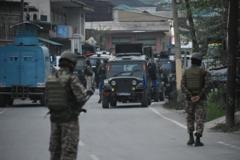In a significant political shift, Friedrich Merz is set to take office as Germany's Chancellor, aimed at rejuvenating the economy and restoring the nation's global stature. Following months of political stasis after the previous government disbanded, Merz's appointment marks a new era as the nation contemplates rising far-right sentiments both domestically and internationally. With a coalition comprised of the CDU, CSU, and SPD holding a slim majority in the Bundestag, Merz faces challenges, including managing expectations amidst a backdrop of public discontent. His initial plans include stricter immigration controls, infrastructure investments, and rekindling ties with influential European neighbors. Meanwhile, the far-right Alternative für Deutschland (AfD) looms as a formidable opposition force, complicating the political landscape as Merz works to stabilize and strengthen Germany's positions both at home and abroad.
New Chapter for Germany: Merz Sworn in as Chancellor After Political Stalemate

New Chapter for Germany: Merz Sworn in as Chancellor After Political Stalemate
Germany's new Chancellor Friedrich Merz embarks on government formation with promises to transform the economy and strengthen international alliances.
As Friedrich Merz prepares to helm Germany, he understands the weight of the responsibilities ahead, stating, "It's our historical duty to make this government a success." Having signed the coalition agreement, he steps into his role amid immense public scrutiny. Despite the CDU’s modest gains in the recent federal election, the party promises stability but recognizes the necessity for visible and responsible governance to curtail growing discontent among voters. As he seeks to address significant issues such as defense spending and immigration, Merz has already initiated key legislative reforms. Simultaneously, he is tasked with navigating the complexities of a newly classified extremist opposition in the form of the AfD, which has recently attracted both national and international attention.
Merz's commitment to fortifying Germany's ties with the United States is juxtaposed against developing relationships with European partners, recognized as critical from various political perspectives. His inaugural diplomatic visits to Paris and Warsaw highlight the emphasis on renewed cooperation, especially in defense. With the backdrop of regional instability, the new Chancellor's administration is set to embark on critical reforms to not only position Germany as a leader within the European Union but also to confront a shifting political tide that has lingered since the last government collapse. Ultimately, as Germany stands at a crossroads, Merz's leadership will be scrutinized through the lenses of economic revival, international collaboration, and internal political dynamics.
Merz's commitment to fortifying Germany's ties with the United States is juxtaposed against developing relationships with European partners, recognized as critical from various political perspectives. His inaugural diplomatic visits to Paris and Warsaw highlight the emphasis on renewed cooperation, especially in defense. With the backdrop of regional instability, the new Chancellor's administration is set to embark on critical reforms to not only position Germany as a leader within the European Union but also to confront a shifting political tide that has lingered since the last government collapse. Ultimately, as Germany stands at a crossroads, Merz's leadership will be scrutinized through the lenses of economic revival, international collaboration, and internal political dynamics.



















